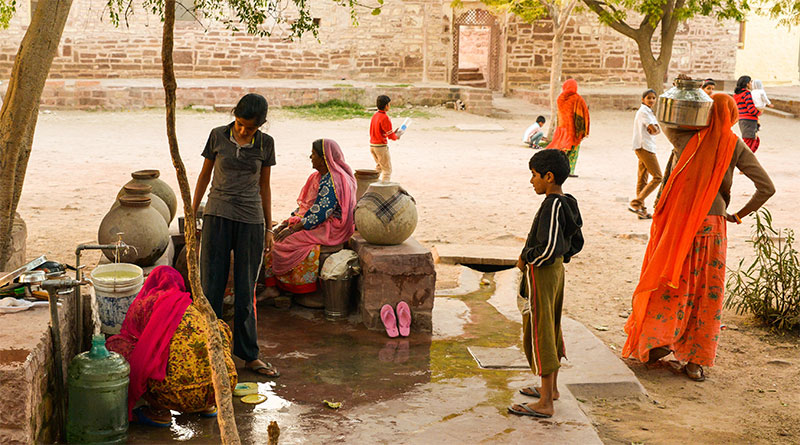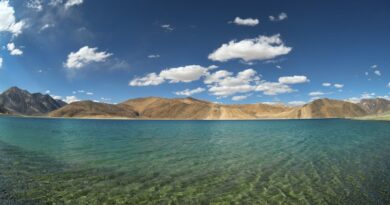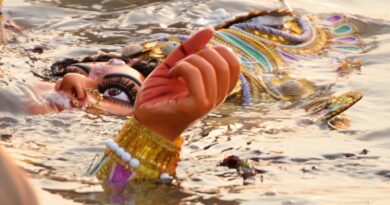Centre recommends five innovative technologies for Jan Jeevan Mission; puts another five on shortlist

In a significant development in the Centre’s ambitious Rs 3,50,000 crore Jal Jeevan Mission, the Union Jal Shakti Ministry has given its approval to five innovative technologies recommended by leading companies from the private sector for drinking water and sanitation projects to be taken up by various states and Union Territories (UTs).
A multi-disciplinary technical committee in the Department of Drinking Water & Sanitation in the Jal Shakti Ministry has recommended these five – three for drinking water and two for sewerage – out of the 10 final technologies considered by it.
The recommended technologies would not mandatorily be put to use in Jal Jeevan projects, but would retain an edge over competition when states and UTs pick up projects and ask private companies to bid for them. The five recommended technologies would now be listed in the innovation portal of the Department.
The five technologies to get the stamp of approval from the technical committee are Grundfos AQpure, a solar energy-based water treatment plant based on ultra-filtration; Janajal water-on-wheel, an IoT based electric vehicle based on GPS location to enable delivery of safe water to the doorstep of households; Presto online chlorinator, a non-electricity dependent online chlorinator for disinfection of water for removal of bacterial contamination; Kubota’s Johkasou technology (packaged MBR systems) – an inbuilt packaged black (sewage) and grey water (kitchen and bath water) treatment system having advanced anaerobic-aerobic configuration that can be installed underground; and FBTec, a site assembled decentralised sewage treatment system using fixed filter media.
The technical committee has requested the other five applicants that were shortlisted to carry out accreditation process or carry out pilots and share field data before they can be reconsidered.
The Jal Shakti Ministry had reportedly picked the technologies from a list of 87 applications based on a series of criteria including affordability, scalability, sustainability, universality and distinctiveness.
The technologies cover both drinking water and decentralised wastewater treatment as the Jal Jeevan Mission’s piped water roll-out is expected to incorporate an element of rural wastewater spending to account for increased water supply and, hence, wastewater production.
The Jal Shakti Ministry said it gives primacy to the infusion and deployment of innovative technological solutions to realize the ambitious objective of the Jal Jeevan Mission to provide functional household tap connection (FHTCs) to every rural home by 2024 with speed & scale while tackling the diverse challenges encountered during implementation.
Under the Mission, innovative proposals are sought online for assisting the states and UTs to adopt innovative technologies to deliver drinking water services to rural communities of adequate quantity and prescribed quality.
Various challenges being faced during implementation of the Mission include variations in regional endowment of water resources & levels of service provision, water quality challenges, convergence with sanitation sector and dealing with grey water or sludge issues, etc.
To address these challenges and to consider and recommend innovative ‘field level solution’ technologies, the Centre had set up the multi-disciplinary technical committee, chaired by Principal Scientific Adviser to the Government of India with members from NITI Aayog, Department of Science & Technology, Department of Bio-Technology, CSIR, DRDO, NEERI, IIT, National Institute of Ocean Technology and various states.
The technical committee focussed on application of science & technology (S&T) for providing field level solutions, which would be helpful to the implementing agencies in the states and UTs.
A two-stage screening process was carried out for short listing the applicants, said an official statement.
Out of the 87 applications received, initial short listing was done by the technical unit based on online submissions of technology, as per the ASSURED matrix framework (affordability, scalability, sustainability, universality, rapid, excellence and distinctive – a term coined by former CSIR Director General Dr RA Mashelkar).
In the second stage, response was sought as a questionnaire followed by a detailed online presentation by shortlisted applicants. Second stage was carried out in lieu of the field evaluation owing to COVID-19 lockdown and travel restrictions. Final shortlisted 10 technologies were considered by the technical committee, out of which five have been recommended.



